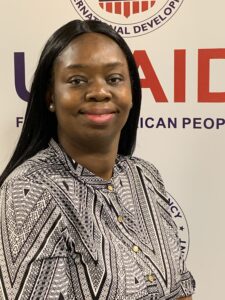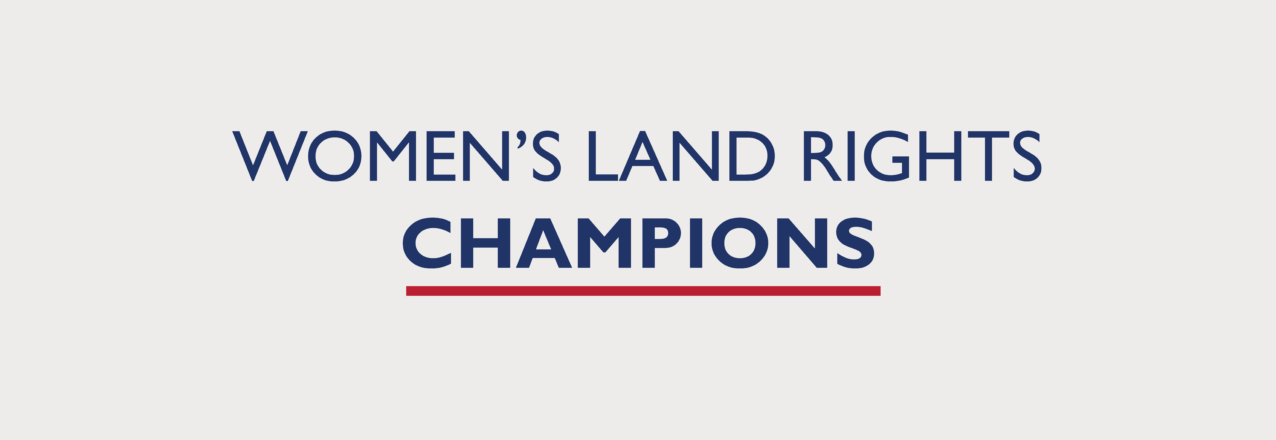This series features Women’s Land Rights Champions within USAID to learn more about their work This month’s Champion is Catherine Tembo, Ph.D., USAID/Zambia’s Natural Resources Specialist in the Economic Development Office.

Tell us about yourself.
I currently serve as USAID/Zambia’s Natural Resources Specialist in the Economic Development Office. My work involves providing technical program support, Interagency, donor, and host country government coordination on sustainable landscapes. With the understanding that secure land and resource rights are a cornerstone of economic growth and poverty reduction, part of my work involves strengthening land and resource governance for economic growth, and food security. Through my work, I support initiatives that help reduce deforestation, increase sustainable development, and a range of other natural and community resource benefits.
During my ten years of working with the Agency, I have had an opportunity to manage land- related programming. I have supported USAID’s assistance on land-related issues as the Activity Manager for the Tenure and Global Climate Change (TGCC) activity, which aimed to increase tenure security while also supporting agroforestry extension services. I have also served as Activity Manager for the Integrated Land and Resource Governance (ILRG) activity, which is undertaking initiatives to support land tenure security in Zambia, as well as improved planning, customary governance, women’s economic empowerment and natural resource management.
Why are women’s land rights and resource governance important to your work? And to other USAID development work?
Women’s land rights and resource governance are critical as they provide economic security for families and communities. Generally women have been known to contribute a greater proportion of their agricultural and natural resource based income to their family and improve food security. An insecure household is a threat to sustainable natural resource management.
What are some of the biggest challenges in helping women secure land rights and what are some things being done to overcome them?
My work of promoting women’s land rights has not been without challenges. Women have been marginalized for a long time and it is only now that they are trying to get out of their cocoons. With our support and working in partnership with the Zambian Government and the traditional leadership, we are seeing an increase in women owning land. In addition, more women are now taking up leadership positions in various natural resources management committees.
What are some of USAID’s successes in the area of women’s land rights?
We have recorded a number of successes with regards to women’s land rights. Traditional leaders are shifting gender norms and strengthening women’s land rights. We have Zambian Chiefs championing gender equality in land and natural resources governance. We have supported Zambia’s National Land Policy, which strives to ensure that 50% of the available land for alienation is allocated to women and encourages Chiefs to allocate land to women, and we have supported the development of customary gender guidelines. We have supported capacity-building activities focused on gender integration and community natural resource governance in Zambia, particularly with civil society and private sector partners. Furthermore, we have worked closely with traditional leaders (both men and women) to open them up to being champions and promoting women’s land rights.
Anything else you want to share?
I must say that I have enjoyed every bit of working on land related matters here at the Agency. I appreciate every aspect of the work that I do, especially since my work includes empowering women in land and improving resource governance – this always puts a smile on my face.


